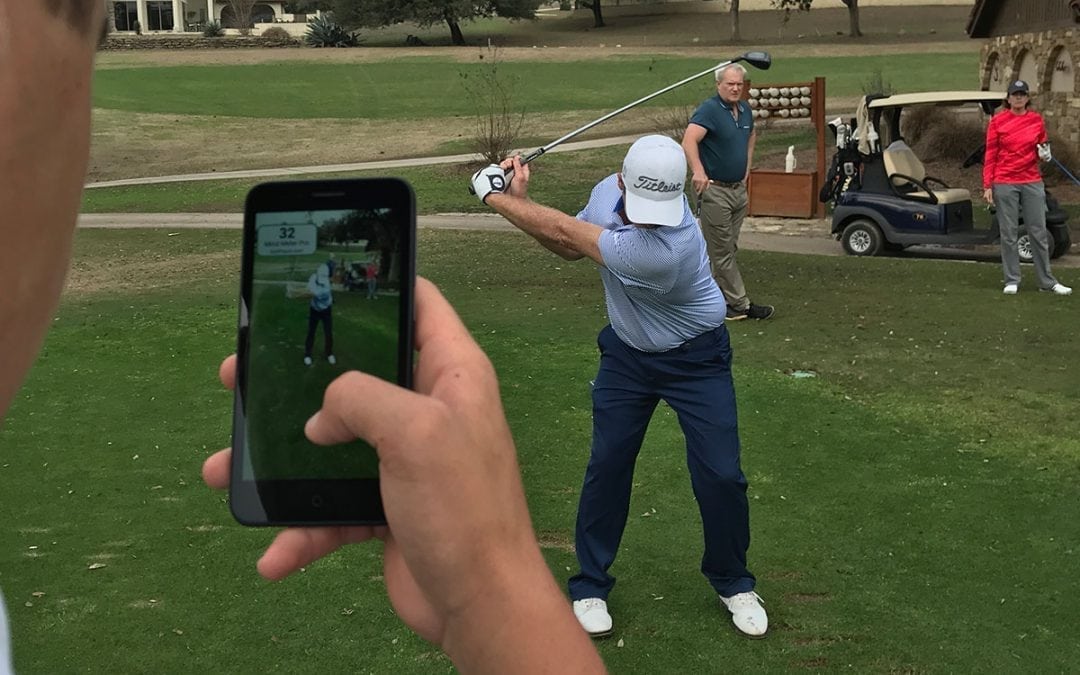Great competitive golf is all about great practice! And great practice is about more than fundamentals, drills and training aids!
If you want to play your best golf, you will need to get the very most from all these valuable tools, as well as from your expert instruction, training, and equipment.
You do this by keeping a keen eye on a few very important things that are the “fine line” between practice that is fun and productive and practice that is frustrating and ineffective or hurtful.
One Size Does Not Fit All
When it comes to finding the very best way to practice for golf, you are unique. Many experienced players are aware of this, but we routinely find a lot of players–including touring pros–who are practicing in ways that are not suited to their games, or, not suited to their personalities. These players are not getting full benefit from their practice. Some have practice habits that are hurting their play!
The old Ben Hogan, “Dig it out of the dirt” quote hurts a lot of players physically and mentally.
Four Reasons Why Players Fall Into Bad Practice Habits
Every player is different but we have uncovered some pretty common trends that explain why so many players are apt to unknowingly adopt practice habits that can stifle or actually hurt their play. Here are few.
1. Bad Advice
While it is well intended, sometimes instructors, coaches or parents will encourage a style of practice that would be natural for them but is not so natural for the player. Or they might give advice that is not appropriate for your fitness, flexibility, personality or mental skills.
Example: The advice may be coming from someone who is a kinesthetic learner that is quite naturally emphasizing techniques well suited to their own style–like heavy use of gadgets and drills. This won’t work well if the player is a visual learner who would benefit more from coaching by visual methods, like demonstrations and video.
2. Choosing the Wrong Role Model
Sometimes players will choose a role model to emulate in practice and play even though they may themselves may have a very different personality than their chosen model.
Example: If a player with a personality like Fred Couples (imaginative & right-brain dominant) chooses to model his practice and play after a player like V.J. Singh (practical & left-brain dominant), he or she could end up committed to a type of practice that for them is overwhelming, confusing and excessive in the area of “quantity” and inadequate in the area of “quality”.
3. Perfectionism
Players with a tendency toward perfectionism can easily get bogged down in practice that emphasizes the details of a perfect swing while it neglects the art of play. This is especially true if they have a teacher or coach who is also a perfectionist.
Example: The player in pursuit of the perfect swing can easily become locked in an endless and compulsive world of drills, mechanical thoughts, video, and positions. They will stubbornly hold on to a belief that their only path to good play is a perfect swing, while completely neglecting the creative and reactive practice that prepares them to play golf.
4. Lack of Organization
Probably the most common reason for faulty practice comes simply from a lack of planning, organizing or goal setting.
Example: The player arrives at the course with no clear goal or plan for practice that day. Without goals, they are easily interrupted or distracted. If they do have focused practice it may not be on areas they need to target for strengthening performance confidence or for preparing them for their next competitive round. They may spend time or so many balls/shots without working on anything specifically and call it practice.
5. Experiment and Prove or Show Improvement
You need to figure out what works best for you. You do not have time to accept slow or no improvement in your physical skills. Be demanding and constantly test yourself by keeping score and competing on the course and in practice to measure what is working and what is not. This is the only way to know that your practice is effective.
Be careful who you ask for advice and test their advice with trials where you keep score. There is a lot of bad advice or advice that is not appropriate for you out there.
If you are struggling with this, please contact us for guidance.



All Good Advice and I would add to keep a Deliberate Practice Plan per K Anders Erickson